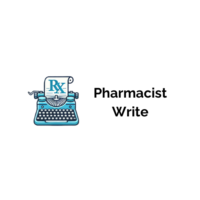MTM Overview: Expanding the Pharmacist’s Role
Medication Therapy Management is a patient-centered service designed to optimize therapeutic outcomes by ensuring that medications are used appropriately and effectively. MTM expands the pharmacist’s role from merely dispensing medications to becoming an integral part of the healthcare team, actively engaging in clinical decision-making and patient care.
Importance: Enhancing Patient Outcomes and System Efficiency
By providing comprehensive medication reviews and personalized care plans, MTM enhances patient outcomes, reduces adverse events, and improves overall system efficiency. In the specialty pharmacy arena, where medications are often high-cost and complex, MTM plays a pivotal role in influencing therapy choices that are both clinically optimal and cost-effective.
I. Core Components of MTM
Comprehensive Medication Review (CMR): Evaluating All Medications
A CMR is a systematic process where the pharmacist assesses all of a patient’s medications, including prescriptions, over-the-counter drugs, and supplements. The goals are to:
- Identify Medication-Related Problems: Such as duplications, interactions, or inappropriate dosing.
- Optimize Therapy: Adjusting medications to achieve the best clinical outcomes.
- Engage the Patient: Educating them about their therapy to improve adherence.
In specialty pharmacy, CMRs are crucial due to the complexity of therapies and the potential for significant cost implications. Clinical pharmacists use CMRs to uncover opportunities to switch to more effective or less costly alternatives, presenting these options to providers with strong clinical and economic justifications.
Personal Medication Record (PMR): Documenting Patient Therapies
A PMR is a comprehensive list of all medications a patient is taking, serving as a valuable communication tool between the patient, pharmacist, and other healthcare providers. It includes:
- Medication Names and Dosages
- Administration Instructions
- Purpose of Each Medication
Maintaining an accurate PMR ensures that all parties are informed, reducing the risk of errors and facilitating discussions about therapy adjustments.
II. Benefits of MTM
Reduced Adverse Events: Identifying and Mitigating Risks
MTM services help in:
- Detecting Potential Adverse Drug Events (ADEs): By reviewing the entire medication regimen.
- Preventing Medication Errors: Through vigilant monitoring and patient education.
- Enhancing Safety: Especially important in specialty pharmacy where medications may have serious side effects.
Cost Savings: Preventing Hospital Readmissions
By optimizing medication therapy, MTM can lead to significant cost savings:
- Reducing Unnecessary Medications: Eliminating therapies that provide little benefit.
- Switching to Cost-Effective Alternatives: Proposing less expensive options without compromising efficacy.
- Preventing Hospitalizations: Proper medication management reduces complications that could lead to costly hospital readmissions.
In the specialty pharmacy context, these interventions can save thousands or tens of thousands of dollars per patient per month, substantially impacting the healthcare system’s financial sustainability.
III. Implementing MTM Services
Workflow Integration: Incorporating MTM into Daily Practice
Successful MTM implementation requires seamless integration into existing workflows:
- Dedicated MTM Time Slots: Allocating specific times for comprehensive reviews.
- Interdisciplinary Collaboration: Establishing protocols for communication with providers.
- Use of Technology: Leveraging electronic health records (EHRs) and MTM platforms to streamline processes.
Clinical pharmacists in specialty pharmacies often work closely with providers, using data analytics and clinical evidence to identify patients who would benefit most from therapy adjustments.
Billing and Reimbursement: Navigating Payment Models
Understanding reimbursement mechanisms is essential:
- Medicare Part D MTM Programs: Pharmacists can receive compensation for providing MTM services to eligible patients.
- Private Insurance: Some insurers offer reimbursement for MTM, especially in managing high-cost specialty medications.
- Direct Billing Models: In certain settings, pharmacists may bill patients or providers directly for MTM services.
Navigating these payment models ensures that MTM services are financially viable, encouraging broader adoption.
IV. Collaborative Care
Interprofessional Communication: Working with the Healthcare Team
Effective MTM relies on strong communication channels:
- Sharing Clinical Findings: Presenting evidence-based recommendations to providers.
- Coordinating Care Plans: Aligning therapeutic goals across the care team.
- Addressing Provider Concerns: Engaging in dialogues to overcome resistance to therapy changes.
In specialty pharmacy, clinical pharmacists often influence prescribing decisions by presenting compelling clinical and cost arguments, leading to more optimal therapy selections.
Patient Engagement: Involving Patients in Decision-Making
Empowering patients is key to successful MTM:
- Education: Providing information about their medications and potential alternatives.
- Shared Decision-Making: Involving patients in discussions about therapy changes.
- Adherence Support: Offering tools and resources to help patients follow their medication regimens.
Engaged patients are more likely to adhere to therapies, leading to better outcomes and reduced costs.
V. Expanding MTM
Chronic Disease Management: Addressing Long-Term Conditions
MTM is particularly effective in managing chronic diseases:
- Customized Care Plans: Tailoring interventions for conditions like diabetes, hypertension, and rheumatoid arthritis.
- Monitoring Progress: Regularly assessing patient response to therapy and making necessary adjustments.
- Preventing Complications: Early identification of issues that could lead to severe health events.
In specialty pharmacy, managing chronic conditions often involves high-cost medications. Through MTM, pharmacists can optimize these therapies, ensuring patients receive the most effective and economical treatments.
Preventative Health: Focusing on Wellness and Prevention
MTM also plays a role in preventative care:
- Immunization Services: Recommending and administering vaccines.
- Lifestyle Counseling: Advising on diet, exercise, and other health-promoting behaviors.
- Screening Services: Identifying risk factors for disease development.
By focusing on prevention, MTM helps reduce the long-term burden on the healthcare system.
Conclusion
Value Proposition: Demonstrating MTM’s Impact
Medication Therapy Management offers significant value by:
- Improving Patient Outcomes: Enhancing the efficacy and safety of medication regimens.
- Reducing Healthcare Costs: Achieving substantial savings through optimized therapy choices, especially in specialty pharmacy.
- Strengthening Provider Relationships: Building trust through collaborative efforts to improve patient care.
Encouraging Adoption: Promoting Widespread Implementation
To realize the full benefits of MTM:
- Advocate for Reimbursement: Engage with payers to recognize and compensate MTM services adequately.
- Educate Healthcare Professionals: Highlight the benefits of MTM to providers and administrators.
- Invest in Training and Resources: Equip pharmacists with the necessary skills and tools to deliver high-quality MTM services.
By embracing MTM, the pharmacy profession can significantly enhance its contribution to patient care and the healthcare system’s sustainability.







